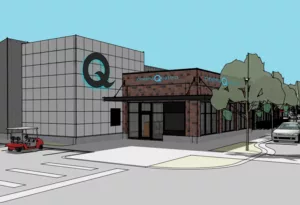
Home » Study links job insecurity, perceived health ailments
Study links job insecurity, perceived health ailments
Fearful workers also show more anxiety, depression symptoms, researchers say
November 21, 2012
Workers who perceive their jobs aren't secure are more likely to rate themselves in poor health and have increased symptoms of anxiety and depression, says a recent article in the Journal of Occupational and Environmental Medicine.
Sarah A. Burgard and colleagues at the University of Michigan, in Ann Arbor, analyzed data on about 440 working-aged adults living in southeast Michigan in 2009-10. The analysis was part of a larger study to assess the impact of the recent economic recession and ongoing recovery on the lives of workers in the Detroit area, which was hit particularly hard by the "Great Recession."
Nearly 18 percent of workers perceived their job was insecure and said they felt it was at least "fairly likely" that they would lose their job or be laid off within the next year. Workers with job insecurity rated their health lower than workers who perceived their jobs as more secure. They were nearly three times more likely to rate their health as fair to poor.
Workers with job insecurity were nearly four times more likely to report symptoms of anxiety attacks, and close to seven times more likely to have symptoms suggesting minor or major depression. Those effects were significant after adjustment for other characteristics, the researchers said.
The study adds to previous research linking job insecurity to poorer health, which could have a major impact on population health in the wake of the recent economic recession—especially with the "jobless recovery" and continued high unemployment rates, they said.
"The study provides some of the first available evidence on the extent and distribution of perceived job insecurity and its association with health in the wake of the Great Recession," Burgard and coauthors wrote. They called for interventions targeting the large number of people who may be suffering the mental and physical health effects of job worries. Especially with the slow recovery, they added, "perceptions of job insecurity may persist for some time."
The journal in which the article appeared is the official publication of the American College of Occupational and Environmental Medicine, an international society of 5,000 occupational physicians and other health care professionals that seeks to promote the health and safety of workers, workplaces, and environments.
Up Close
Related Articles




